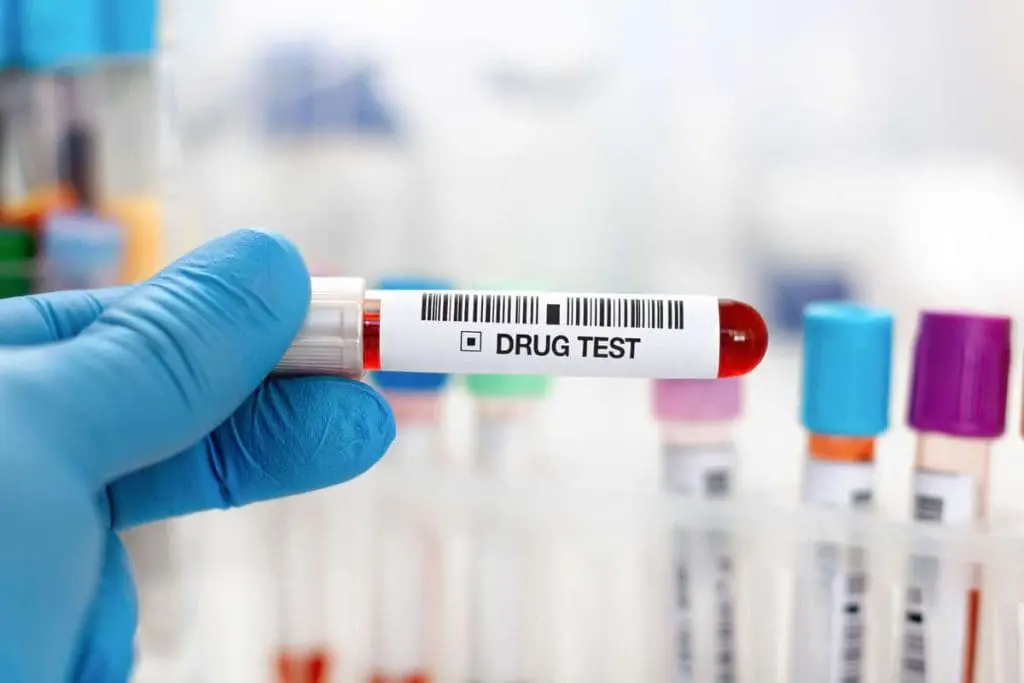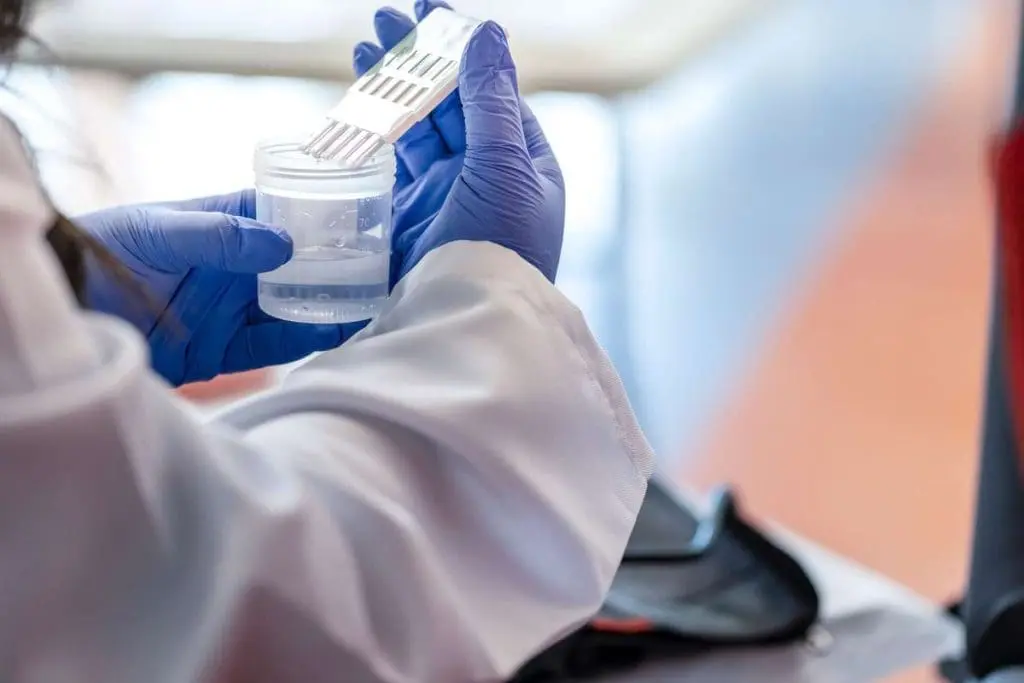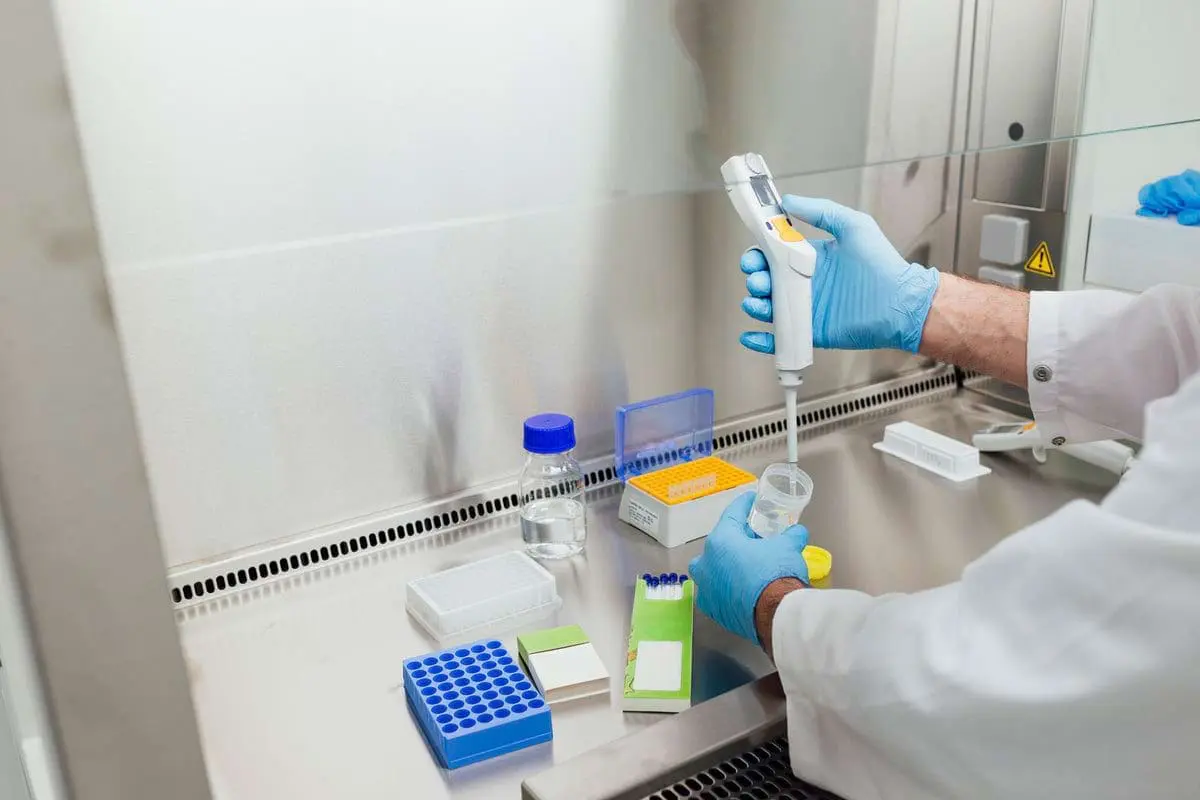A Medical Review Officer (MRO) drug test is administered by a licensed physician responsible for receiving and reviewing laboratory results generated by an employer’s drug testing program. The MRO also evaluates drug test results.
In this blog, we’ll dig deeper into the question “What is an MRO drug test?” We will look at the test procedure, the role of the MRO in testing, different types of MRO drug tests, why they are important, and more.
Table of Contents
What is an MRO drug test?

An MRO drug test is used to screen employees for possible substance use. Tests are often performed as part of the employment screening process; randomly throughout an employee’s tenure; or after an employee suffers a work-related accident.
The Role of a Medical Review Officer
An MRO is responsible for the entire drug testing process, from the initial sample collection to the analysis and reporting of lab results. Per the Federal Motor Carrier Safety Administration (FMCA), “MROs receive laboratory-confirmed urine drug test results; determine whether there is a legitimate medical explanation for a laboratory-confirmed positive, adulterated, or substituted result; and review and report a verified result to the designated employer representative (DER) in a timely and confidential manner.”
An MRO is trained to collect test samples and certified to review laboratory results. MROs are experts in the toxicology of illicit drugs and substances. They must closely follow the chain of custody of drug test samples and keep accurate records to ensure that samples do not lose their integrity or end up in the wrong hands.
Understanding MRO Drug Testing
The MRO drug test process begins with the collection of a urine sample from the donor. The collection is overseen by the MRO, who then submits the sample to a laboratory where it is analyzed for illicit substances.
Upon receiving the results, several action items occur, depending on if the results are positive or negative. In either case, the MRO reviews the chain of custody for the sample to ensure there were no errors that may have compromised the test results. Beyond that:
If MRO drug test results are negative:
- The MRO ensures the results are accurate and sends the verified findings to the employer and employee.
- The results are then reported to both the employer and employee.
If MRO drug test results are positive:
- The MRO must attempt to reach the donor at least three times within 24 hours.
- If they cannot reach the donor, they must notify the employer of the need to contact the donor.
- The employer must attempt to reach the donor at least three times within 24 hours.
- Upon reaching the donor, a confidential interview is scheduled, during which the MRO will discuss the test results with the donor. At this time the MRO will attempt to understand the employee’s drug use.
- The MRO reports the final result to the donor’s employer.
Importance of an MRO Drug Test
Substantial drug use can lead to high turnover rates, absenteeism, low-quality work, and more. Substance abuse is particularly harmful in industries like transportation, where an employee’s drug use may hurt not only themselves but others around them, including passengers or others on the road.
An MRO drug test is an important tool for keeping employees and others safe, healthy, and productive. Results are generally very accurate and returned within a matter of days. Some tests, including four panel drug tests, return positive or negative results in only a few minutes, though further laboratory analysis may be required to determine the actual substance the employee may be using.
How does MRO drug testing work?

Let’s explore the MRO drug testing process from start to finish, including the drug testing procedure and reviewing and confirming the test results.
The drug testing procedure
The MRO drug testing procedure starts with the collection of a donor’s urine sample and ends with the analysis and reporting of laboratory test results. It includes:
- Collection of a 30 to 50-ml urine sample.
- Transfer of sample to a qualified testing laboratory.
- Laboratory results are sent back to the MRO in charge (usually within 24 to 72 hours).
The review process of an MRO
Once the MRO receives the drug test results from the lab, they must carefully review the results and take steps to ensure their accuracy. This involves:
- Analyzing the test results, including whether they are positive or negative and what types of drugs were detected.
- If positive, the MRO must attempt to contact the donor at minimum three times within 24 hours to share the results and schedule an appointment.
- If they fail to reach the donor, the MRO must notify the donor’s employer, who must then attempt to contact the donor at minimum three times within 24 hours.
- A meeting is finally scheduled with the donor to discuss the findings and determine next steps.
Confirming and reporting the drug test results
In the case of a positive MRO drug test result, the MRO will schedule an appointment with the donor to go over their findings. This meeting will cover:
- Drug test results, including which drugs were determined to be in the donor’s system at the time of the initial sample collection.
- The history of the donor’s drug use.
- Possible treatment options/next steps.
The meeting and any results or treatment plan discussed are held in strict confidence.
Varieties of MRO drug tests

There are different varieties of MRO drug tests, including pre-employment drug tests, random drug tests, and post-accident drug tests.
Pre-employment drug test
Pre-employment MRO drug tests are used to screen potential employees for substance use before they are hired to perform a job. They are usually one of the last steps before hiring and are an effective tool for keeping drugs out of the workplace.
Random drug test
Employers have the option to initiate random MRO drug tests at any given time and without advance notice. The U.S. Department of Transportation (DOT), for example, requires companies in the transportation industry to conduct DOT-compliant random drug tests on safety-sensitive employees on an ongoing basis. This practice helps companies maintain a drug-free workplace.
In addition, the Drug Free Workplace Act requires that federal agencies, including the Department of Defense, routinely screen personnel for drug use. The U.S. Department of Health and Human Services (HHS) implemented the program which now resides in the Substance Abuse and Mental Health Services Administration (SAMHSA).
Post-accident drug test
Employees who suffer workplace-related accidents may sometimes be prescribed pain-relieving drugs like oxycodone or Vicodin. While legal, these and similar drugs can be highly addictive. Therefore, post-accident drug testing may be required to ensure that employees are not abusing the drugs or continuing to use disqualifying medications beyond the parameters of their prescriptions.
What does the MRO stand for in Drug Testing?
MRO stands for “Medical Review Officer.” Let’s look at what an MRO is, including the professional credentials required to be an MRO and their ethical and legal responsibilities.
The professional credentials of an MRO
To be an MRO, an individual must be a licensed physician (either a Doctor of Medicine or Osteopathy). Both DOT and HHS specify the professional credentials needed to be an MRO and these guidelines can be applied to any drug testing program (both government and non-government). As an example, per the U.S. DOT, that person must have basic knowledge in several areas, including knowledge of:
- Controlled substances abuse disorders, including detailed knowledge of alternative medical explanations for laboratory confirmed drug test results.
- Issues relating to adulterated and substituted specimens as well as the possible medical causes of specimens having an invalid result.
- DOT MRO guidelines and agency regulations applicable to the employers for whom the MRO evaluates drug test results.
MROs must also receive qualification training around:
- Collection procedures for specimens.
- Chain of custody, reporting, and record keeping.
- Interpretation of drug and validity test results.
- The role and responsibilities of MROs in the DOT drug testing program.
- The interaction with other participants in the program (including employers).
More information can be found in DOT Rule 49 CFR Part 40 Section 40.121. And for HHS/SAMHSA definition of an MRO’s professional credentials, refer to the Medical Review Officer Guidance Manual for Federal Workplace Drug Testing Programs.
The ethical and legal responsibilities of an MRO
An MRO is responsible for validating the accuracy and integrity of the drug testing process. This includes ensuring that drug samples are handled in an appropriate way so that they are not tampered with at any point during the testing process.
Once results are returned and validated, the MRO is responsible for reporting them to the employee and employer in a confidential manner. For federal government drug testing programs, the MRO must also perform all functions in accordance with DOT or HHS regulations.
The impact of an MRO drug test
Let’s examine how MRO drug testing contributes to a safe and productive work environment and the possible legal implications of a positive test result.
Workplace safety and MRO drug testing
Mitigating employee drug use and helping employees with addiction can help address some of the more serious and common problems associated with drugs in the workplace, including adverse impacts on workers’ health and higher insurance costs.
By pre-screening prospective employees before they are hired, an MRO drug test can help keep substance abuse out of the workplace before it even begins. Random MRO drug testing can ensure that employees remain clean during their tenure, and post-accident drug screening can help verify that employees who may have taken prescription pain relievers do not continue to abuse the drugs.
Legal implications of MRO drug testing
In addition to maintaining the confidentiality of a donor’s test results, the MRO:
- Cannot be an employee of the facility or laboratory testing the specimen.
- Cannot have a financial interest in the laboratory.
- Cannot receive any financial gain by recommending a specific test facility.
Non-federally regulated employers have a lot of latitude when it comes to the courses of action they can take in the event of a positive test result. They could legally opt to arrange for the employee to be enrolled in a treatment program, put the employee on probation, terminate the employee, and more.
However, in federally regulated industries, such as trucking, positive test results and instances of refusal to test must be reported by employers or MROs to the appropriate regulatory body such as the Federal Aviation Administration or DOT/Federal Motor Carrier Safety Administration (FMCSA). In the case of the FMCSA, violations will be listed on the federal Drug and Alcohol Clearinghouse for a period of five years. This database can be accessed by prospective employers seeking screening information about job applicants. The results of a failed DOT drug test will not appear on a criminal background check.
Employees also have legal rights, including the right to be tested in a non-discriminatory way, the right to be notified of testing policies, the right to challenge test results and the right to privacy.
Commonly asked questions about MRO drug testing (H2)
How long does the MRO drug test process take?
The initial sample collection only takes a few minutes. Transit to a lab can take anywhere between 24 – 72 hours. Testing in the lab is generally very quick, though it can take the MRO up to 96 hours to confirm positive test results, especially if they have trouble reaching the donor.
Can MRO drug test results be contested?
Donors have the right to contest MRO drug test results. In general, a donor must produce proof that another factor beyond illicit drug use influenced the test result (such as a prescribed medication, environmental factor, or certain type of food) to successfully contest the results.
How reliable is an MRO drug test?
MRO drug tests are typically very reliable. Although false positives and false negatives do occur, they are rare. The stringent review process involved in analyzing MRO drug test results contributes to the accuracy of the process.
The indispensable role of MRO drug testing: a recap
With MRO drug testing, employers can pre-screen potential employees before they are hired, perform random drug tests throughout an employee’s tenure, and screen employees for continued or illicit drug use following a workplace accident. Whatever the tactic, MRO drug testing is a powerful tool that improves worker productivity, safety, and morale while saving employers significant money on drug-related insurance costs.
Learn about Acuity’s workplace drug and alcohol testing programs. Then, contact us so we can help you implement MRO drug testing for your organization.
